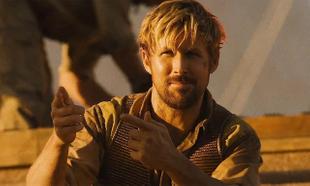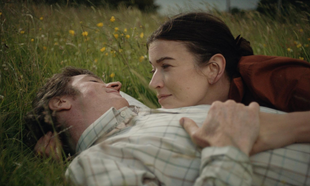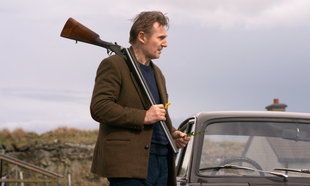The rate of change to the Newtok coastline is alarming
The community of Newtok, Alaska, is a small, intimate one with only 375 residents. They are tragically losing their homes and land as storms, fierce rolling seas and melting permafrost causes major erosion along the edges of the town. Newtok could be lost to climate change and in spite of being promised help to move the village since the 1990s, no support is coming. Through the eyes of Irish filmmaker Tom Burke, we meet the locals, are introduced to their culture and traditions of music, hunting and fishing, and witness the divisions among the townspeople which are intensifying the issues facing Newtok.
Unlike other environmental documentaries which can feel like they’re pushing an agenda, ‘Losing Alaska’ effectively paints a picture that climate change really is happening not via exaggerated statistics but through physical evidence. Burke shoots his doc over three years between 2015 and 2018 and you can see the land literally being swallowed up and the coastline closing in on the houses near the waterfront. The rate of change to the waterfront throughout the film is alarming. At one point, an intense storm arises and the water appears to be attacking Newtok as it breaks up the land. It’s a frightening sight, and one of the locals puts it best as they describe the weather as “eating land like it was candy.”
Burke effectively paints a sorrowful picture through access to the heart of the community. Locals of various backgrounds open up to share their sad, personal stories, though as the interviews can be rummaged through so quickly that one can get a little confused at exactly what everyone’s role is, and perhaps too many interview subjects were included. Still as we see the locals gather to play music and fish for their livelihood, it’s clear that these people are losing their distinct way of life. One is especially distraught upon hearing about the high suicide rates among the young people there. Moreover, issues like colonialism and racism hang over Newtok too.
The viewer will likely channel their deep frustration at witnessing these problems at the US for not taking care of this forgotten state on the fringe of America. The inclusion of footage of Barrack Obama urging for action (there is notably no footage of a certain current President who doesn’t think climate change is even happening) particularly draws attention to the fact that the States should be but aren’t taking care of their own. Thus the movie doesn’t function quite as a call to action, and one is left a little confounded with what to do next having seen what they’ve seen. Still, witnessing the reality what is happening is at least a step in the right direction.










































































